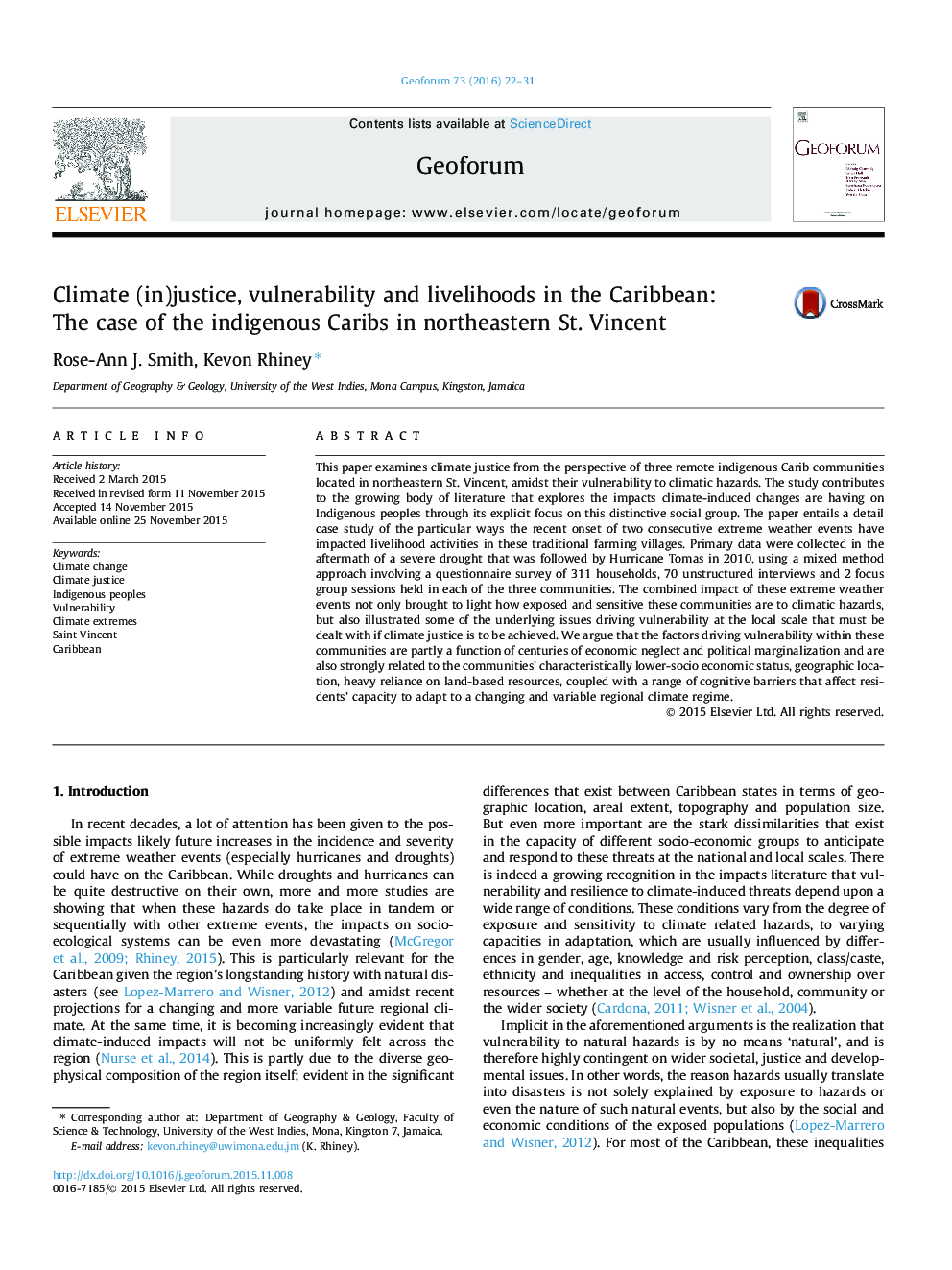| کد مقاله | کد نشریه | سال انتشار | مقاله انگلیسی | نسخه تمام متن |
|---|---|---|---|---|
| 5073429 | 1477116 | 2016 | 10 صفحه PDF | دانلود رایگان |
- Climate-induced impacts will not be uniformly felt across the Caribbean.
- Vulnerability is highly contingent on wider societal, justice and developmental issues.
- We consider the varying effects extreme climate events are having on Indigenous Caribs.
- Vulnerability of communities is linked to long-term economic and political neglect.
This paper examines climate justice from the perspective of three remote indigenous Carib communities located in northeastern St. Vincent, amidst their vulnerability to climatic hazards. The study contributes to the growing body of literature that explores the impacts climate-induced changes are having on Indigenous peoples through its explicit focus on this distinctive social group. The paper entails a detail case study of the particular ways the recent onset of two consecutive extreme weather events have impacted livelihood activities in these traditional farming villages. Primary data were collected in the aftermath of a severe drought that was followed by Hurricane Tomas in 2010, using a mixed method approach involving a questionnaire survey of 311 households, 70 unstructured interviews and 2 focus group sessions held in each of the three communities. The combined impact of these extreme weather events not only brought to light how exposed and sensitive these communities are to climatic hazards, but also illustrated some of the underlying issues driving vulnerability at the local scale that must be dealt with if climate justice is to be achieved. We argue that the factors driving vulnerability within these communities are partly a function of centuries of economic neglect and political marginalization and are also strongly related to the communities' characteristically lower-socio economic status, geographic location, heavy reliance on land-based resources, coupled with a range of cognitive barriers that affect residents' capacity to adapt to a changing and variable regional climate regime.
Journal: Geoforum - Volume 73, July 2016, Pages 22-31
